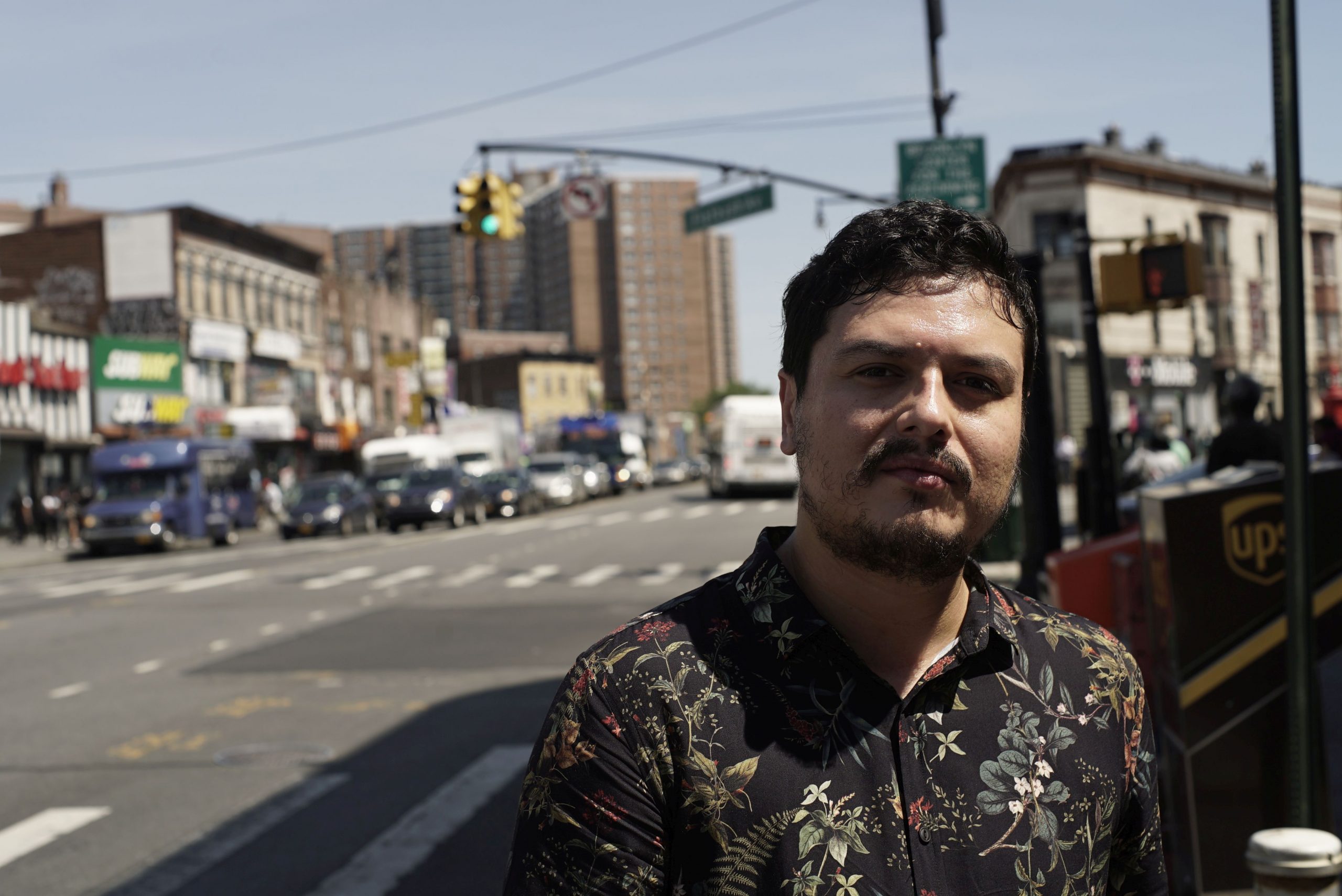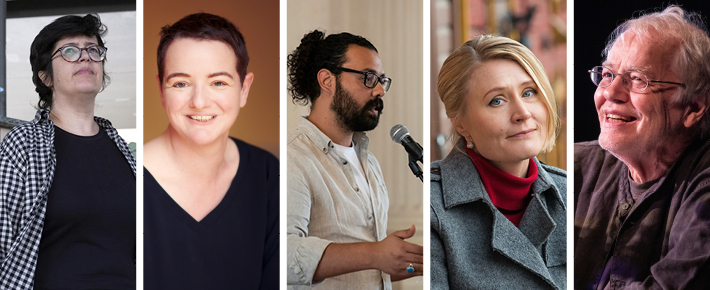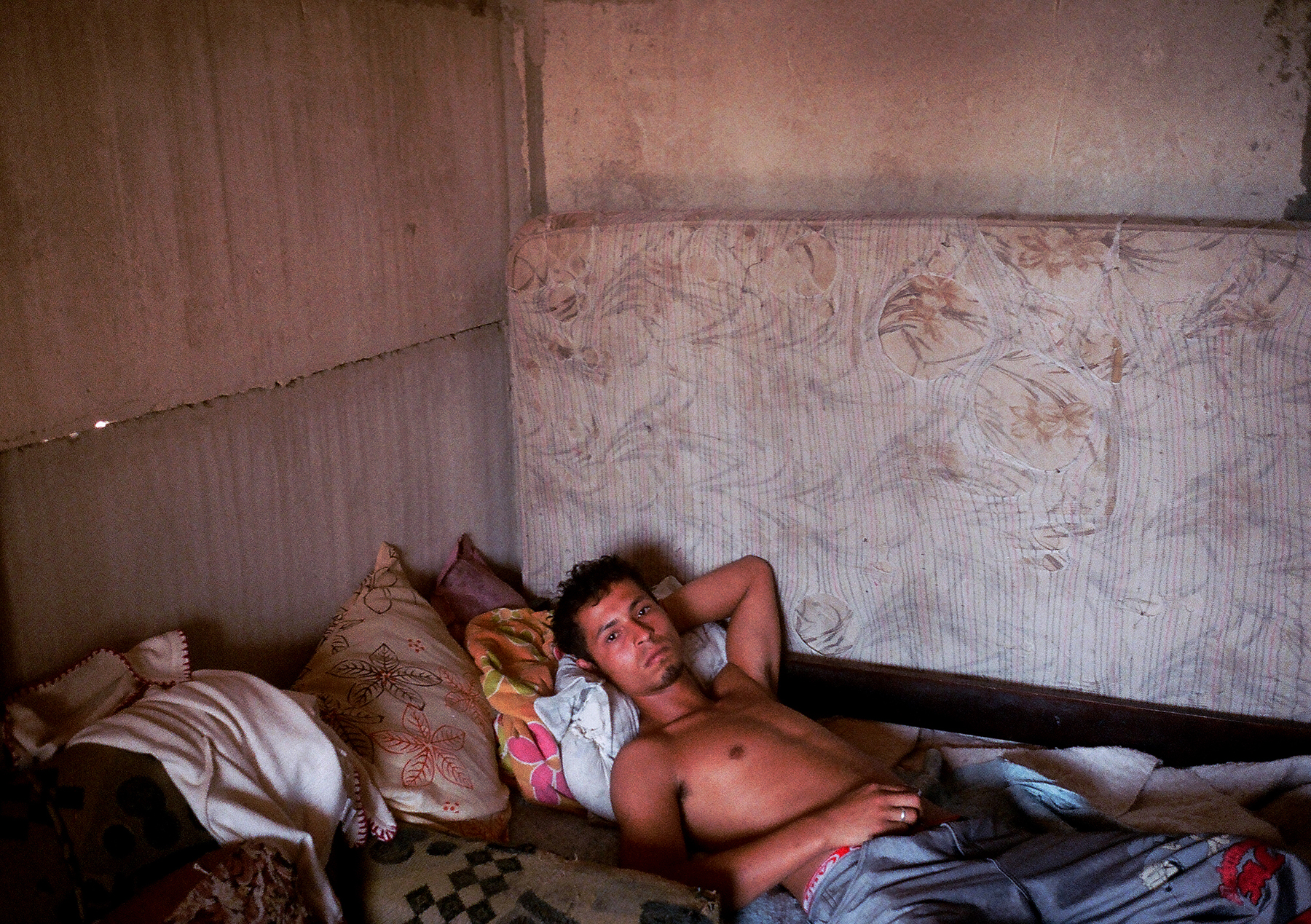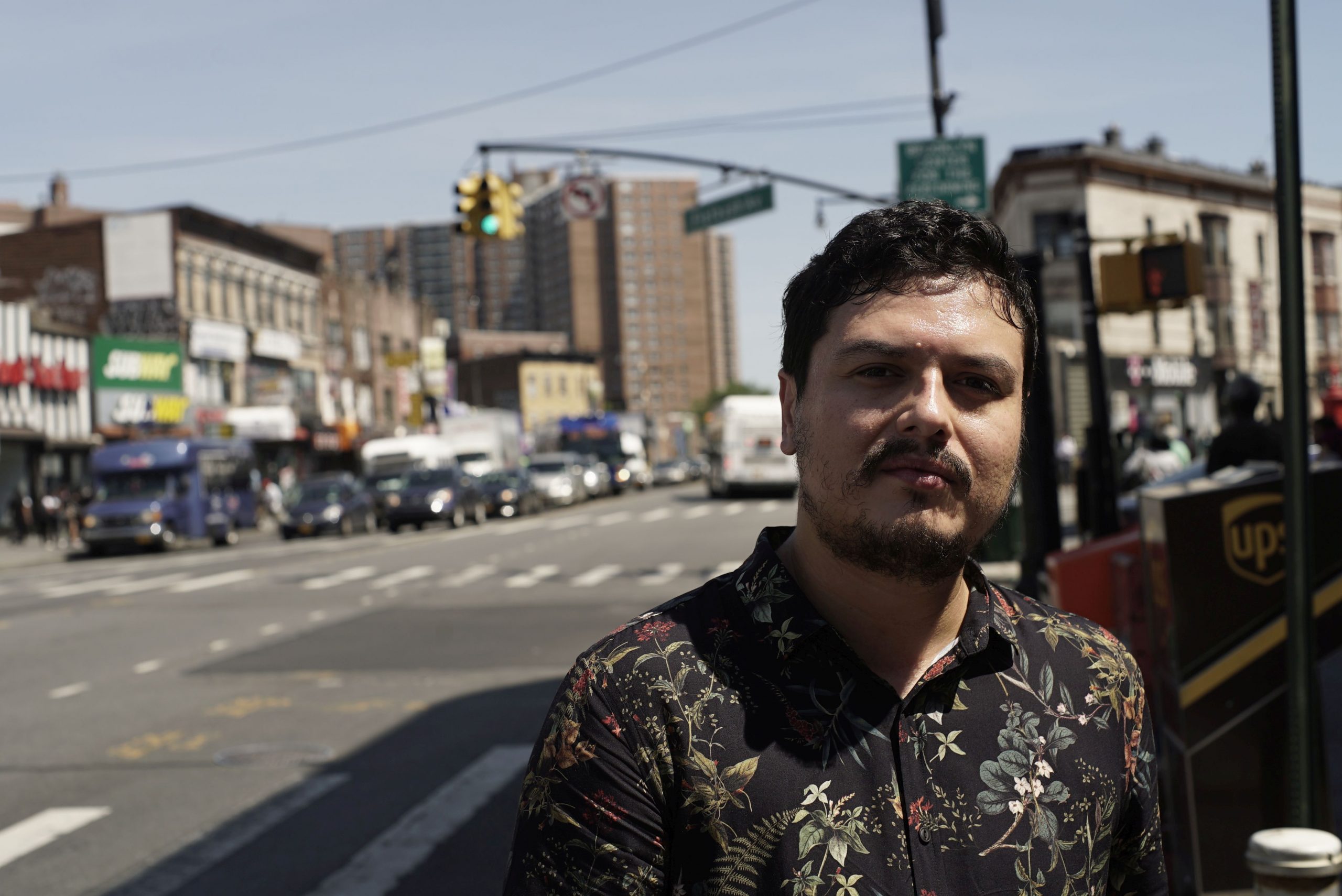Brazil, Film, 2020
Affonso
Uchoa

One of the most surprising formal operations in the Christian bible takes place in the sixth book of the New Testament, in Paul the Apostle’s Epistle to the Romans. Near the end, the writer breaks free from the author, introducing himself as “Tertius, who wrote down this letter.” Tertius (literally “third” in Latin) of Iconium was the amanuensis for Paul the Apostle’s longest epistle. This narrative wrinkle has generated debates that range from narrative authenticity (who was Tertius? Was he Christian? Was he a slave? What was the relationship between him and Paul the Apostle?) to media archaeology (was the Epistle conceived in a different language that required translation? Were scribes common at the time?), altogether pointing to the relevance of mediation: who tells a tale adds a tail.
The films by Affonso Uchôa are not consistently religious, even though the one that most directly invokes a narrative Tertius—the found notebook in Arábia (Araby, 2017), co-directed with João Dumans—starts and ends in the city of Ouro Preto, the cradle of Brazilian catholic baroque art. Nonetheless, his films are testimonies of the importance of the mediator—an element that exists in the fold between two different worlds, which can sometimes be a character (Andre—Murilo Caliari—in Araby), or a filmmaking device (the long take in Seven Years in May, 2019), but that is also reflective of the position of the filmmaker himself.
Born in São Paulo, in 1984, Uchôa was not widely known by international audiences until Araby premiered in competition at International Film Festival Rotterdam, kickstarting a successful global run, collecting laurels from Buenos Aires International Festival of Independent Cinema, Viennale, FIDMarseille, Indie Lisboa, and rave reviews along the way. Its follow-up, Sete Anos em Maio (Seven Years in May, 2019), won an award at the Burning Lights International Competition at its premiere at Visions du Réel, and has since thrived in festivals such as Toronto International Film Festival, Jeonju International Film Festival and Film Madrid despite its awkward run time of 42 minutes.
His trajectory precedes international recognition with two feature films (A Vizinhança do Tigre, The Hidden Tiger, 2014; and Mulher à Tarde, Woman in the Afternoon, 2010) and two shorts (Desígnio, Design 2009; and Ou a Noite Incompleta, Or an Incomplete Night, 2006, co-directed with Luiz Gabriel Lopes, Maurício Rezende, and Priscila Amoni) widely circulated in local festivals. His emergence in international cinema coincides with the coalescence of a singular aesthetic in his film The Hidden Tiger, which uses the cinephilic formalism of his earlier films—Desígnio and Woman in the Afternoon—to distort and potentialize the gripping reality of his aptly-named neighborhood—Nacional, in the city of Contagem, Minas Gerais. This idiosyncratic third glance, both removed from and implicated in the creative matter of the world before it, results in films that refresh the political vocation of Latin American cinema, pushing it toward a radical self-reflection that does not refuse narration, but instead pulls it from the frail fabric of daily life.
Text: Fabio Andrade
2006: Ou a Noite Incompleta
Co-directed with Luiz Gabriel Lopes, Maurício Rezende and Priscila Amoni
(Short film)
2009: Desígnio
(Short film)
2010: Mulher à Tarde
(Feature Film)
2014: A Vizinhança do Tigre
(Feature Film)
2017: Arábia
Co-directed withJoão Dumans
(Feature Film)
2019: Sete Anos em Maio
(Short feature film)




